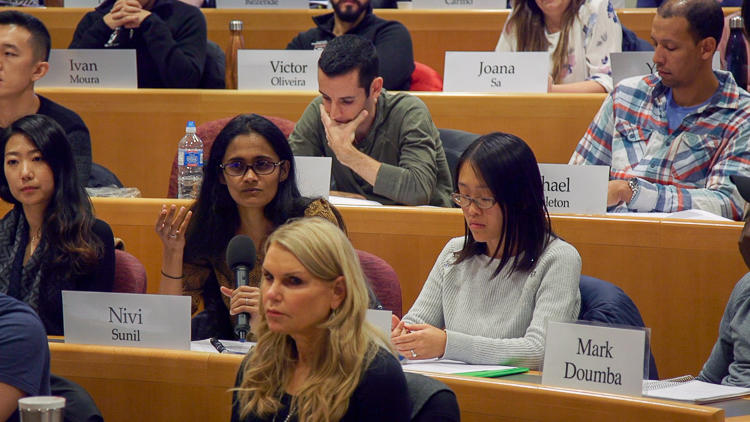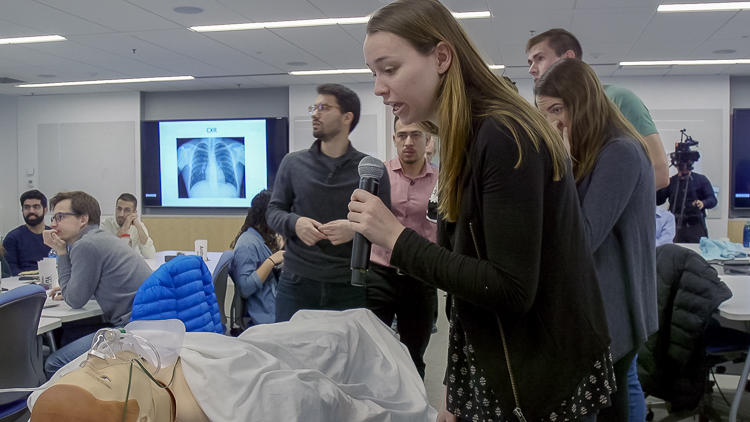What sparks deeper learning is not always neatly predictable. Sometimes instructors must move “off-script” to harness serendipitous moments of discovery. This requires flexibility, quick decision-making, and deft plan-tweaking. In this video, Dan Levy uncovers his thought process in one such classroom moment and explains his decision to withhold a correct answer from his students. The cliffhanger serves to kindle curiosity among students, many of whom conclude the week energized and eager to deepen their understanding.
Modifying plans to excite deeper learning
Instructor
Dan Levy, Senior Lecturer in Public Policy
Student Group
Graduate
School
Harvard Kennedy School
Course
Advanced Quantitative Methods
Group Size
74 students
- Craft lesson plans but exercise flexibility with them. Seize those moments in class which might spark curiosity and motivate further discovery among students.
- When many students in a class share a particular misunderstanding, simply transmitting the correct answer to students might curb their natural inclinations for discovery. Consider withholding correct answers when appropriate to mobilize excitement for deeper learning.
- Quick assessments of student understanding, such as a “show of hands” poll or a quick-write at the end of class (also called an “exit ticket”) don’t take much time or preparation, but they do give instructors valuable snapshots of student learning. As Levy demonstrates, such temperature-taking can also inform lesson trajectories in the moment.
- Studies in expertise suggest instructors prioritize depth over breadth as this approach supports deeper learning (Morphew et al., 2015; Bransford et al., 2000)
- In their review of student attention during lecture, Wilson and Korn advise instructors to take into account individual differences in student attention, suggesting that in-the-moment student data should inform how instructors introduce content (2007)
- One study demonstrates that designing challenging essential questions correlates with student self-reports of academic growth (Shim & Walczak, 2012)
- An article from The Chronicle of Higher Education describes a method for lesson planning that allows instructors to be more dynamic and flexible
- In “Teaching by the Case Method: Timing”, Harvard Business School professors reflect on how they create flexible plans and adjust timing on the fly
- In another Instructional Moves video, Christina “V” Villarreal discusses how she uses guiding questions to make strategic choices about how to prioritize class time




